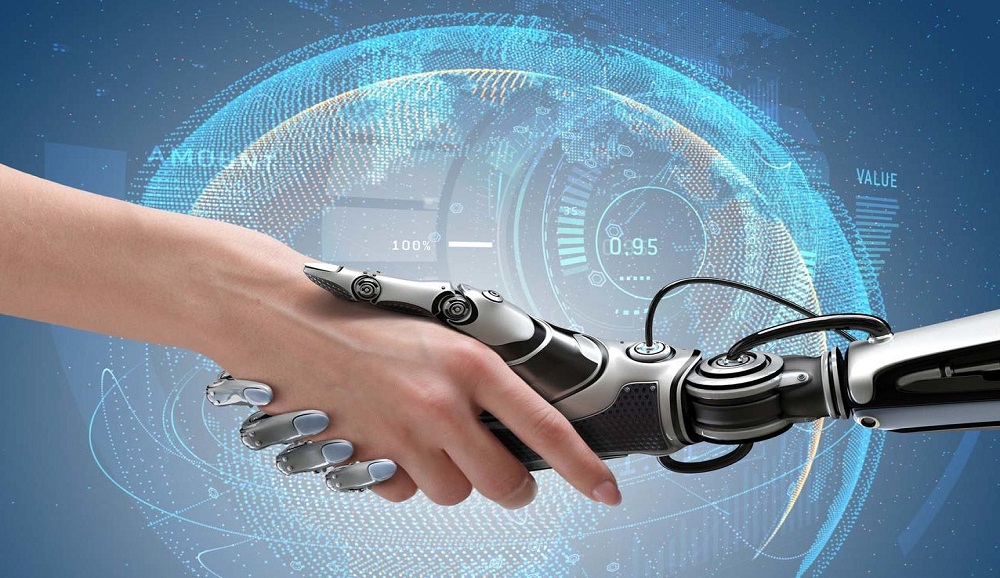

Technology has not only been smart enough to change the personal and work environment but also has the capacity to think smarter than humans, which has resulted in smart workplaces and better outcomes at work. Smart algorithms that help people to eliminate redundancy in work and concentrate on high-value tasks are rising faster than we anticipated. With the world undergoing serious technological changes recently, technologies like IoT, artificial intelligence, and more are influencing the professional space and changing the way people think and interact at work.
There are many ways in which the future of technology has started to impact the work environment, thus, requiring the need for advanced technical knowledge and skills among future tech professionals. Thus, in this article today, we, at Indore Institute, will be elaborating on the key technologies that are being expected to have a huge impact on the future work environments.
IoT – Internet ofThings
IoT, which is also known as the Internet of Things, has influenced the creation of smart workplaces, and this is going to be the ‘thing’ of the future work environment. Since smart workplaces or smart buildings are not only supposed to be interactive but also bring solutions to workplace problems and data collection, IoT is definitely going to make its pace in the work environments in the coming times.
With IoT, businesses can rest assured about workplace security as the connected devices will make the work environment both smart and secure for employees to connect, collaborate, and exchange data. Moreover, IoT devices allow workplaces to be automated with various tasks, giving more room for collection, storing, and tracking of data beyond human capability, thus resulting in better outcomes than ever.
Digital Hiring
As always, technology has made hiring too easy, efficient, and a time conserving process, which will be the go-to hiring method in the future for all the organizations. Smart algorithms, which have artificial intelligence embedded in it, will help big organizations in their tedious hiring process. Everything from collecting resumes, tracking data, and shortlisting potential candidates to contacting and arranging interviews are done by AI processes, making the work simpler and smarter for the organization. Learning smart algorithms will help aspiring professionals to hunt the right employee, from the best talent anywhere in the world, with a less-cumbersome process.
Digital Assistant
We are not far away from humanoids and robots working for us, which, in fact, at some places of work have already been deployed. The work accomplished by a human will be soon taken over by a digital worker, which can be anything from an algorithm, a humanoid robot or an automated ML process. All these come under artificial intelligence, which helps professionals in reducing redundant work and efficiently manage sectors that include high-value tasks.
We have already started using AI assistants in smartphones and laptops, and this is expected to advance further, taking on physical roles to handle intelligent processes that increase efficiency at work. As artificial intelligence can be trained to think smarter than humans, several industries will start deploying intelligent process automation that has the capacity to think, make decisions, and work beyond human capacity.
These tech advancements could be smarter than humans, and so it is necessary for professionals to get advanced skill sets and abilities that aid working in the future work environment. With the right education and training, students can be equipped with the capability to create a smarter work environment for the future. To that end, we at Indore Institute of Science and Technology, regarded as the Best engineering college in MP for Computer Science, provide holistic learning with advanced tech skills for students to enhance the employability quotient for the future work environment. We have dedicated Special Interest Groups targeted towards training and research and development on emerging areas like Data Analytics, Cloud Computing, Artificial Intelligence, Internet of Things (IoT), Robotics, and more.
The Interactive, Technology enabled ‘Flipped Learning’ Methodology at IIST induces technological sense among students and makes them aware of future tech developments. The focus remains on capacity building of the students and creating an atmosphere for continuous learning, research, and innovation.With high-tech labs, talented faculties, and practical approach towards learning, we, at IIST, enable students to build future-ready skills and cater well to the evolving IT industry requirements.